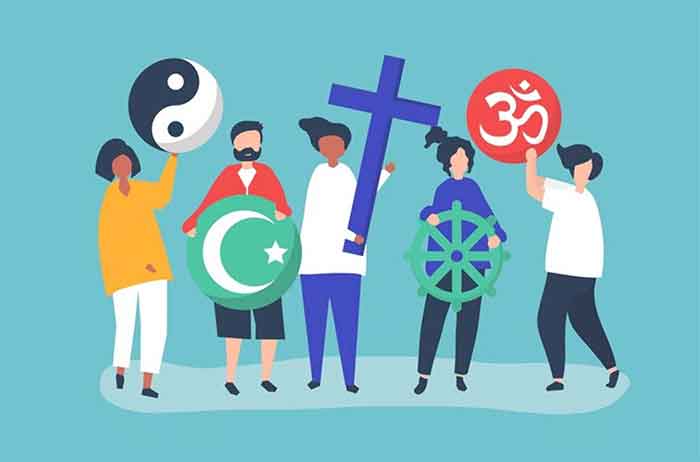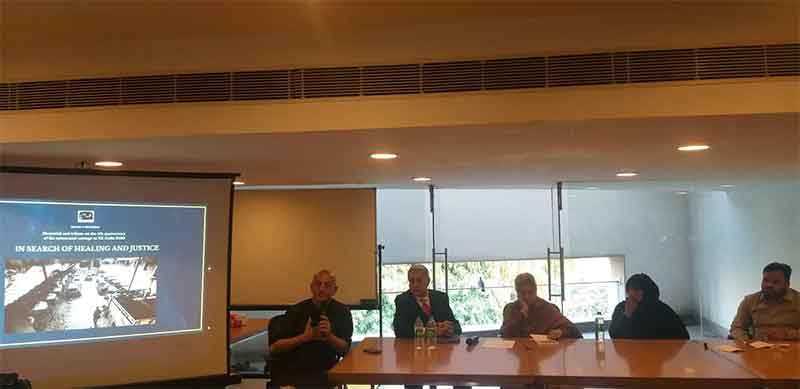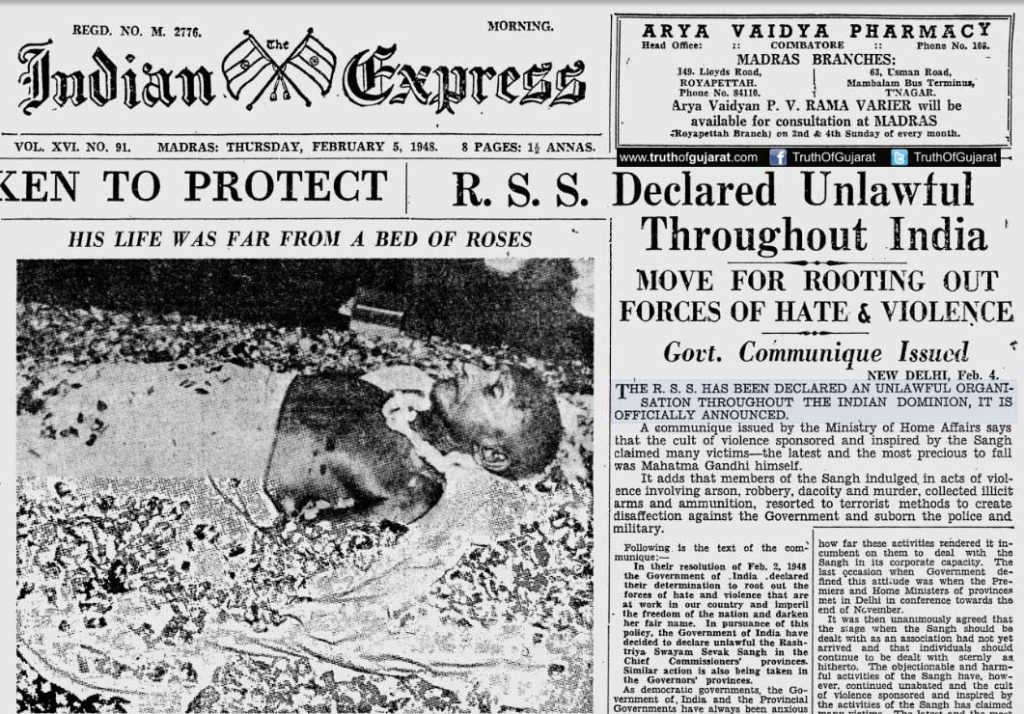
Goa was in crisis mode on Sunday when Hindu-Muslim clashes occurred in the vicinity of Vasco. A large crowd of Ram Navami processionists marched through Vasco on the occasion of Ram Navami on 10th April. They chose the small and congested streets of the area rather than the broader convenient approved route thus creating disruption. At the conclusion, a small group continued to march towards the Masjid-A-Aqsa mosque. Muslims were praying at the mosque ahead of the ‘Iftar’. The processionists chanted ‘Jai Shree Ram’ and political catch phrases such as ‘go to Pakistan’. They entered the mosque and continued sloganeering with intent to provoke. Muslim elders intervened and averted a clash inside the mosque.
A scuffle ensured when the Muslims went to the police station to lodge an FIR. The Hindutva groups were at the police station to further incite. This led to unsightly scuffles between Muslim youth and the Hindu youth. It was brought under control by police and elders. In the middle of all this, an alleged stone throwing incident from the Muslim area was reported but its actuality is yet to be established.
Until now 17 people have been arrested in the Sunday clashes under bailable offences – all Muslim youth. It demonstrates the communalization of the incident at law and order level. After all, the first assault came from a section of the processionists- all Hindu. Why are no Hindu people arrested? The clash was between two communities. Justice obliges a fair-handed approach. Any bias on the part of the police is unacceptable. A Reserve police force now patrols the streets to forestall more clashes.
The design of Ram Navami procession seems to be based on a national template for demonstrating Islamophobic intolerance. Reports show nine States – Madhya Pradesh, Gujarat, New Delhi, Goa, Rajasthan, Jharkhand, Karnataka, West Bengal, Maharashtra and Bihar pursuing this pattern. The notion of ‘Hindus in danger’ is now the rallying space for anti-Muslim violence. The part that has greatest dangers is that many of the trouble makers in the Vasco clashes are people from from Northern states who have been sent to foment trouble in Goa. Ram Navami processions must visit temples not arrive at mosques.
Hindus are not really in danger in India. Extremist elements are using this inventive pretext to unleash create violence. The majority of Hindus in India do not feel endangered. They live in peaceful co-existence with other faith communities, and celebrate life together in many facets – weddings, births, festivals etc. But politically constructed prejudices of extremist groups can assume perilous magnitude and have led to situations of violence.
Goa may not have witnessed the vandalization of mosques to the same extent as in other states. Sanvordem riots 2006 were the exception. In 2017, Goa saw the vandalizing of a number of crosses; gravestones and an artifact outside a Hindu temple. The gathering of the Santahan Sanathan Sanstha in the same year threw up anxious moments with some of the most incitement in the form of hate speeches against minorities.
Now, a new demand has arisen. They want the ‘Azan’ be removed from Muslim worship. The High Court has called for the ‘Azan’ to be used within acceptable decibel levels. It is a call to worship and a non negotiable. But the lowering of decibels must apply to Hindu temples and Christian churches too.
Earlier this year, Christians felt unsettled by a viral video with a right-wing outfit threatening to stop the feast of Saint Joseph Vaz. This outfit was seen forcing Goa’s Archives and Archaeology employee to stop the Novenas and Feast of St. Joseph Vaz, which takes place at the Frontispiece of Sancoale Church, where Saint Joseph Vaz once worshipped. The claim was that the 416-year-old Sancoale church was actually a Laxmi Narasimha temple built over some of the ruins of 500-year-old churches in Goa that were built after razing temples. Church leaders argue that from 1606, Sancoale’s Our Lady of Health church has continuously possessed the property within which the old façade gives the church its name. The claim of tenancy over seven church properties surrounding the old church is by a litigant who maintains that his forefather was allowed to pluck coconuts for six years without any ownership rights. Hence, he argues, the property is not rightfully that of the church. The claim of a pre-existing temple resulted in a puja conducted in December 2020 and an inflammatory speech. The police was an idle spectator to these atrocities. The situation was neutralised when Catholic priests asserted that the claims of the fringe elements were baseless. That this situation will not recur has no guarantee.
Recently the Government has allotted Rs 20 crore to reconstruct temples supposedly destroyed by Portuguese colonialists. It is causing disquiet among Catholics.
It is a myth that Goa is defined by the absence of communal stress. The fact is that there latent prejudices lurk between communities. Communalism survives in silence and concealment. Muslims, and increasingly Christians bear the brunt of exclusion. And, Goa may be sitting on a tinderbox.
The High Court should take suo moto cognizance of the communal situation, and prevent further conflict with legal provisions. Moreover, outsiders should be barred entry to destabilize the peace of Goa by aggravating peace.
Two inter-connected options may be:
- First, government can set up Mohalla Committees. Good policing entails accompanying people′s participation. In the multi-religious, multi-cultural society that Goa is, Mohalla Committees must be created at the fractured junctions of community and facilitate multi-religious dialogue/partnerships for social cohesion.
- Second, a ‘State Minorities Commission” is an urgent compulsion and must comprise eminent citizens from the Hindu, Catholic, Muslim, Sikh community including Dalit and Tribal leaders to safeguard minority interests.
At the end of the day, it is worth affirming that peace and justice among religions is a precondition for peace.
Ranjan Solomon is a political commentator, human rights activist, and believes in inter-faith partnerships for social advancement.
Originally published in “The Goan”














































